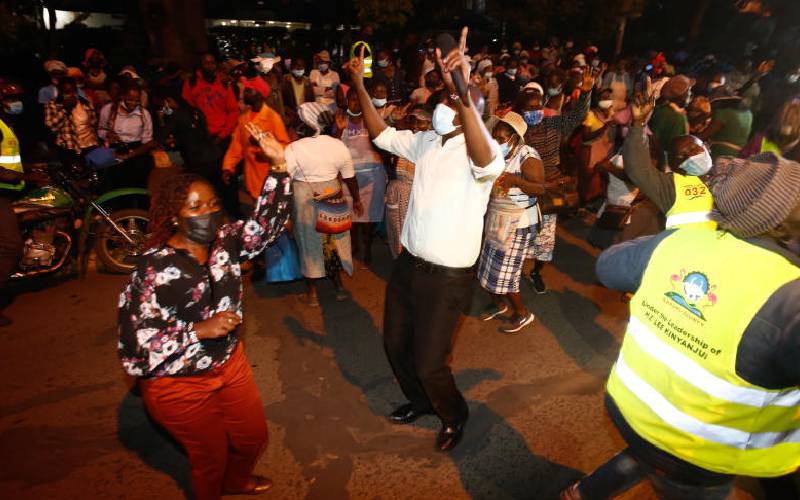×
The Standard e-Paper
Stay Informed, Even Offline

Residents of Nakuru town broke into songs and dance along the streets of the town on June 3, 2021, after the senate approved a report by the sectoral committee on devolution and intergovernmental relations that proposed the municipality be conferred with the city charter.[Kipsang Joseph, standard]
With the Senate's approval of Nakuru's bid for city status, the town is just a step away from achieving the feat.